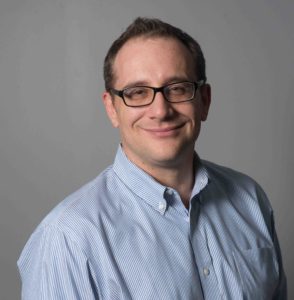178: Jayson Matthews on Solutions to Hunger.
Discussing food insecurity in urban communities and how to improve resilience against hunger.
 Jayson is currently the Director of Ending Hunger for the Valley of the Sun United Way and has been with the organization since September 2014. Before joining the United Way, Jayson served as Executive Assistant to former Tempe Mayor Neil Guiliano, as the Assistant Director and Chief Program Officer of Tempe Community Council, and as the Chief Development Officer for United Food Bank.
Jayson is currently the Director of Ending Hunger for the Valley of the Sun United Way and has been with the organization since September 2014. Before joining the United Way, Jayson served as Executive Assistant to former Tempe Mayor Neil Guiliano, as the Assistant Director and Chief Program Officer of Tempe Community Council, and as the Chief Development Officer for United Food Bank.
Jayson earned a Bachelors of Arts in English Literature and Political Science from the University of Arizona in 1999 and a Masters in Public Administration from Arizona State University in 2003. He is also a graduate of Tempe Leadership, a trained facilitator specializing in nonprofit board development and community development, and recently became a Certified Poverty Coach.
He is a fierce advocate for human services and public service and demonstrates this through his volunteer work on various municipal boards, commissions, and nonprofit boards in Phoenix and Tempe. In his free time, he enjoys going on adventures with his dear wife and partner Emma and their adorable dog, Daisy.
In this podcast: The complex and often misunderstood situation of food insecurity and hunger is the focus of discussion in Greg’s interview with Jayson. Jayson’s personal history growing up as the son of a young single mother gave him the empathy he needed to fill his role at the United Way. Jayson helps to explain many of the distinctions of hunger as well as how prevalent the reality is in the urban communities in America.
Listen in and learn about:
- Being raised by a young single mother and how that helped formed his values with community and food
- His work at the United Way and focusing on food insecurity in Maricopa County
- Their work to break the circle of poverty and food security
- Food insecurity and how it is how hunger is defined and the critical differences between starvation and food insecurity
- Some of the effects chronic food insecurity can have on children and into adult life
- Why hunger is still a problem in industrialized societies and why the perception of hunger in America is off base
- How so many key events in life have a meal involved
- The ratios of food insecurity in
- –Phoenix: 1.1 million out of 6.5 million,
- –US: 1 out of 4 children, 1 out of 5 adults, and 1 out of 7 seniors
- Why it is more complicated to calculate rural areas
- How the US compares to other countries
- Why the American diet makes solving food insecurity even harder
- How malnourishment relates to food insecurity
- How poverty and obesity are linked
- How the relationship with food is so complicated
- Why growing your own food can help
- Why Jayson says ending hunger is about bringing community together
- How a community can help by sharing meals, skills, and emotional support
- How a community can work together to get better food options in their community
- The short-term solution the United Way is utilizing
- The long-term plan of the United Way, and why the plan is not to build more food banks
- The work in the soil in Maryvale, AZ
- The goal to open 15 urban farms in the community and how they intend to do that
- How listeners can make a difference in their own backyards through growing, cooking, and talking
As well as:
- His failure – working with communities and coming with preconceived expectations of who they were and what they needed, and how he has learned to improve his communication
- His success – being able to do what he does in the communities, and seeing a community take ownership of a project
- His drive – Tikkun Olam: A jewish concept defined by acts of kindness performed to perfect or repair the world
- His advice – just get out there and connect with the people in your neighborhood and community
How to reach Jayson:
Website: vsuw.org
UrbanFarm.org/PhxUnitedWay
*Disclosure:
Some of the links in our podcast show notes and blog posts are affiliate links and if you go through them to make a purchase, we will earn a nominal commission at no cost to you. We offer links to items recommended by our podcast guests and guest writers as a service to our audience and these items are not selected because of the commission we receive from your purchases. We know the decision is yours, and whether you decide to buy something is completely up to you.


